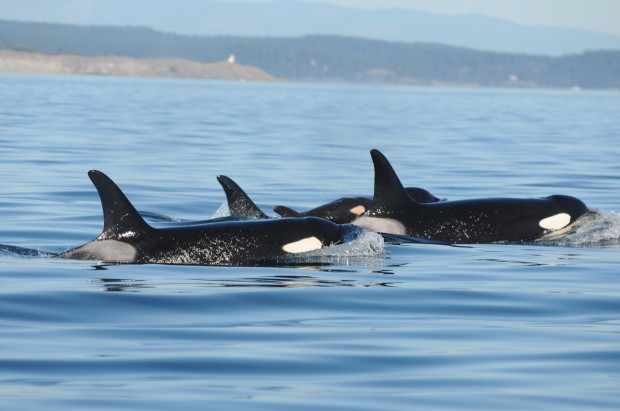
VANCOUVER: A newborn killer whale calf discovered near British Columbia’s Gulf Islands is being hailed as a “blessed event” for a dwindling orca population.
The baby whale, which is just a couple of days old _ was spotted and photographed swimming alongside its mother off the shores of Pender Island on Tuesday.
The calf, whose gender is not yet known, is part of the J pod of the so-called southern resident killer whale population and is being labelled J-50.
Its mother, identified as J-16, is the oldest southern resident whale to give birth in more than four decades of field studies at 42 years old and was not expected to be carrying a calf.
Howard Garrett, a director of Orca Network in Washington state who has worked with southern resident orcas for more than three decades, said this is the first successful birth for two-and-a-half years, assuming the calf survives.
“It’s a blessed event, it’s great to see a new calf, and it’s a great way to end a year that’s had some serious disappointments,” he said.
Southern resident killer whales are considered an endangered species, with just 78 in the waters of B.C. and Washington state, including the new arrival.
In early December, a 19-year-old whale identified as J-32 and a full-term fetus it was carrying were found dead off the shores of Vancouver Island. Another calf died about a month earlier.
Garrett said those deaths dashed scientists’ hopes for the population to rebound and grow in size, but he said this birth has given researchers new hope that the dwindling southern resident population will rebound.
“It’s just the bare glimmer of the beginnings of, hopefully, an upwards trend,” he said.
“They’re teetering on the brink of depletion to the point of no return. There should be three or four per year to begin a growth pattern. Or at least two or three just to keep up with the expected mortalities.”
Garrett said depletion of chinook salmon, which are the whales’ primary food source, has been the major problem in trying to rebuild the southern resident population.
“The main problem that is causing the mortalities, by all the science over the last 10 years to try to answer that question, the consensus is its a lack of enough chinook salmon,” he said.
“They’re so specialized in their diet, that they will really only eat chinook. A little bit of chum salmon, about 15 per cent or so. But their survival depends on abundant runs of chinook salmon. And its our responsibility to restore those salmon runs if we want to have these orcas around.”
© 2014 The Canadian Press






